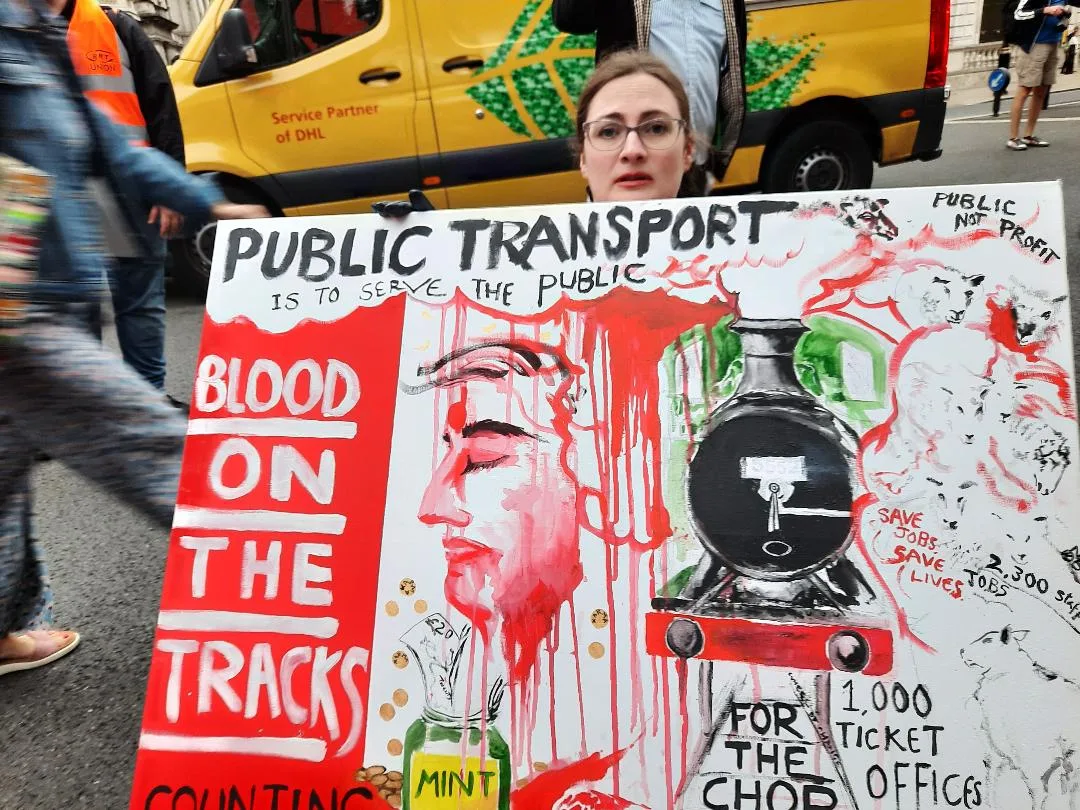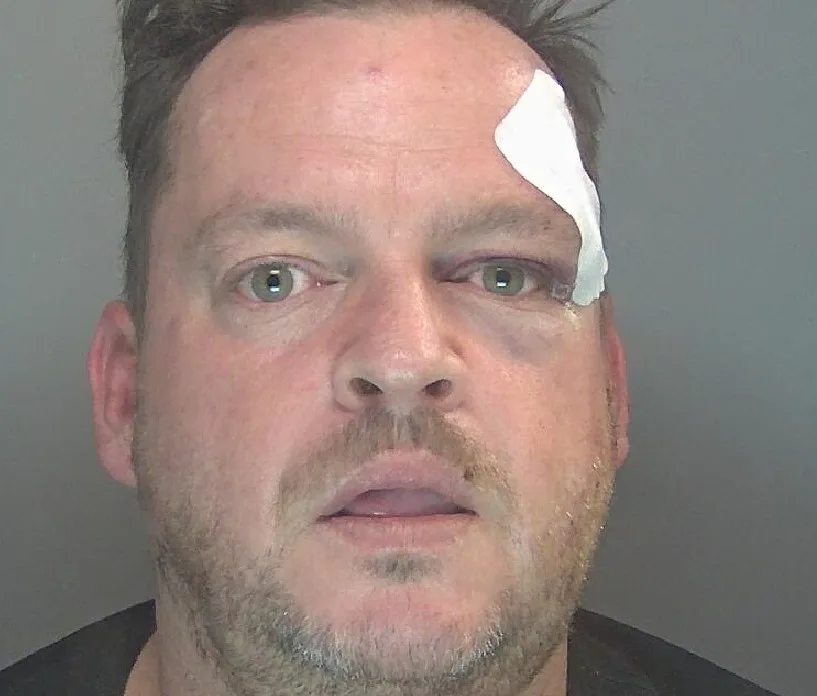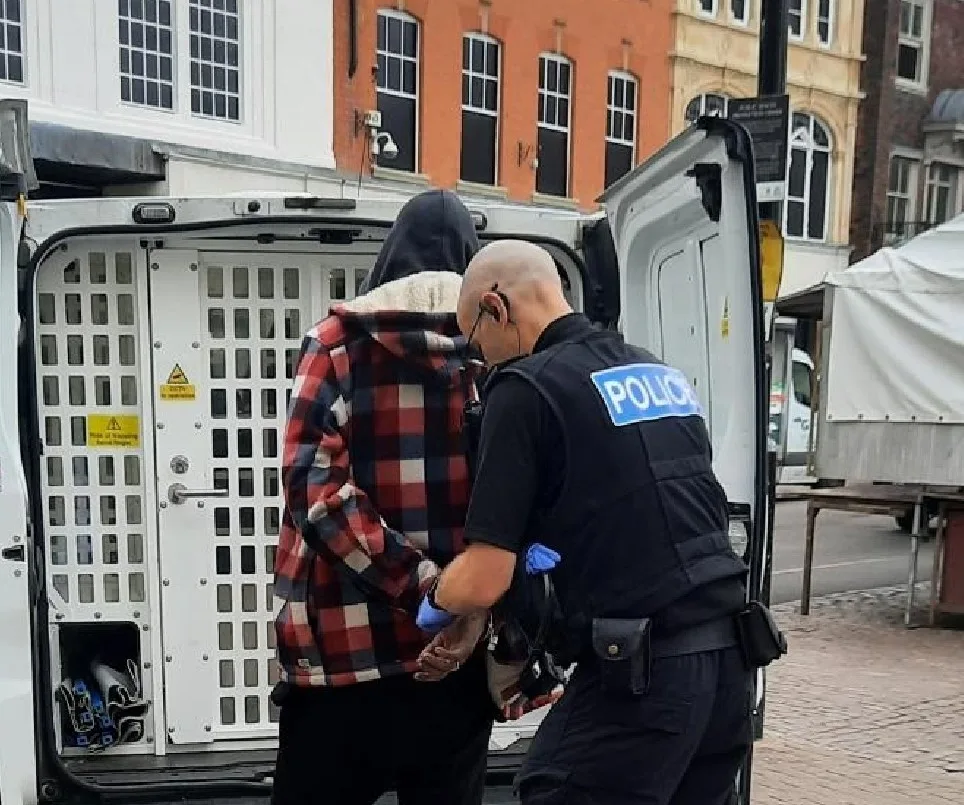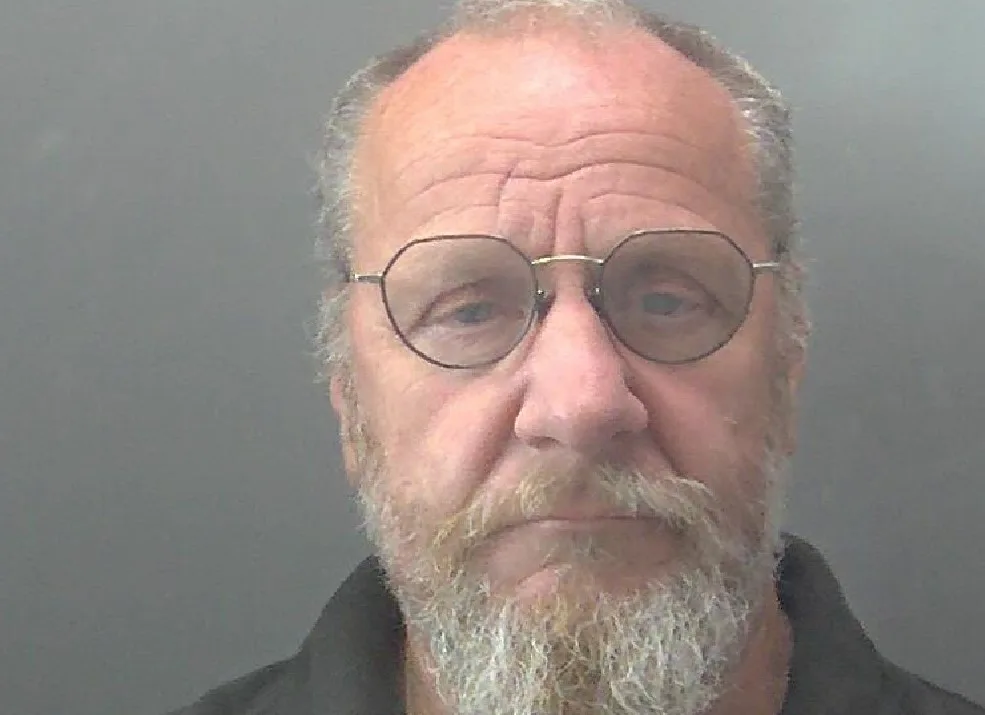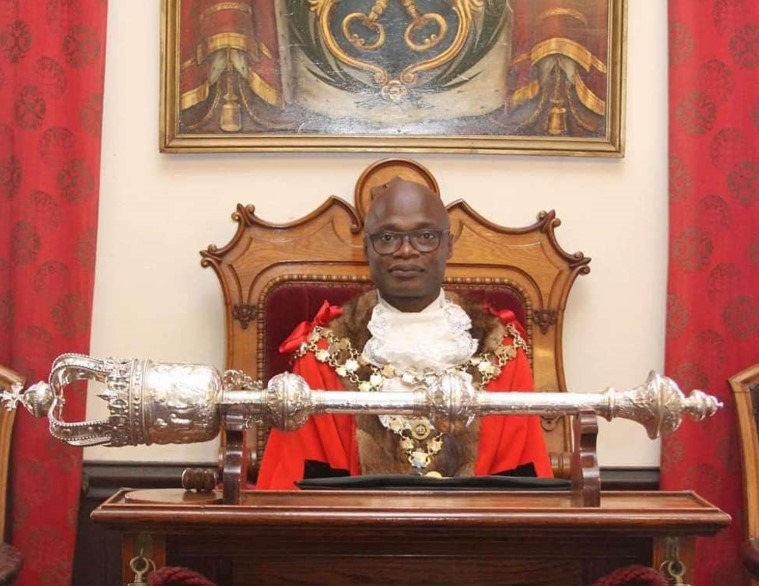Protestors from Cambridgeshire were among the demonstrators who took the fight to keep railway ticket offices open right to the gates of Downing Street.
On Thursday, an estimated 1,000 people – one for every ticket office facing closure – marched for the cause.
The RMT – (National Union of Rail, Maritime and Transport Workers, who organised the event) say 2,300 staff face the sack.
Former Lib Dem Cambridgeshire County Councillor Amanda Taylor was among those who gathered outside the Department for Transport and marched to the seat of government.
She said: “These cuts are injudicious, iniquitous, and reckless.”
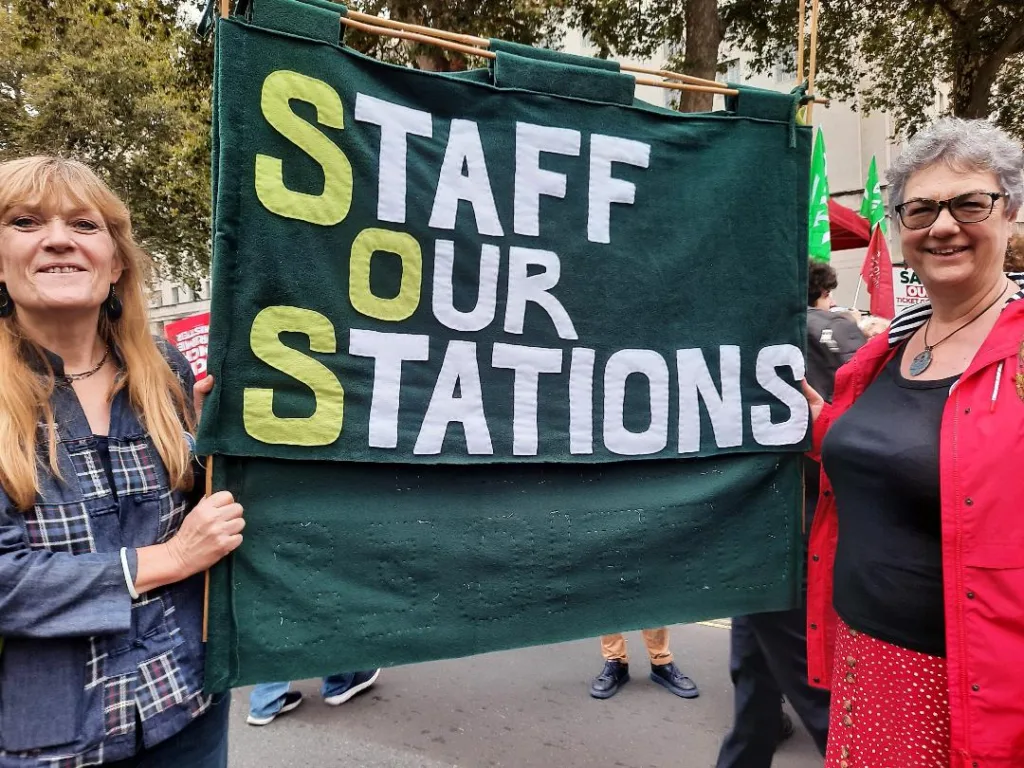
Staff our Stations – Two women on the march with their banner. On Thursday, an estimated 1,000 people – one for every ticket office facing closure – marched for the cause.
Speakers included Sarah Leadbetter, campaigns officer for the UK National Federation of the Blind who she would no longer be able to travel. “I will be isolated and have to stay at home. It’s denying our rights.”
She recalled falling at a railway station.
“My bum was on the platform and my legs were under a stationary train.” Fortunately, there was a member of railway staff there to help her.
Fran Heathcote from PCS (the Public and Commercial Services Union) said closing ticket offices was part of a general attack on working people by defunding public services. She urged people to fight closures on every front. Zarah Sultana, Labour MP for Coventry South said railways should be back in public ownership.
The MP for Slough, Tanmanjeet Singh Dhesi, (Tan Dhesi) Shadow Minister for Rail, described the “managed decline” of the railways, saying this was deliberate government policy.
All were impassioned speeches – none less than those from now Independent MP, Jeremy Corbin, who mentioned quietly to me before he went up to speak that that station staff had told him part of their job was to prevent suicides.
On stage, he recalled that last week travelling from Edinburgh to London on the train an attempted suicide at Newark had closed the line.
“A police officer lost his life trying to save someone from taking their own life. A tragic, tragic situation – all the trains were stopped. People had to make other arrangements.
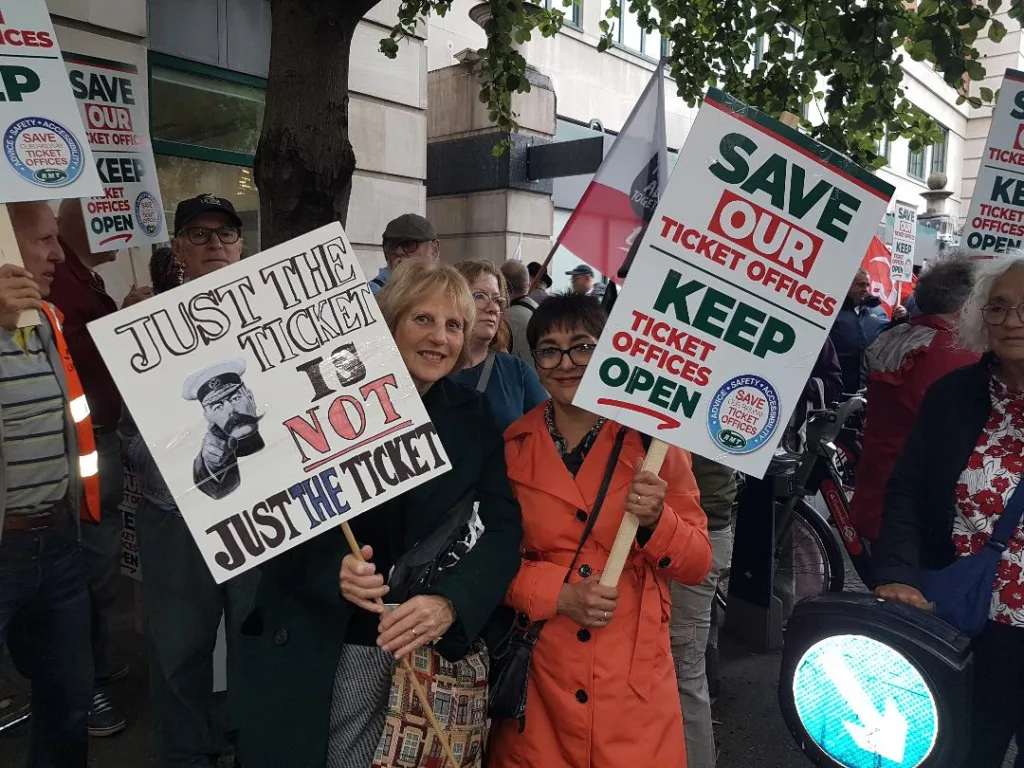
“I stayed over in York and the next morning I went to the ticket office at York Station, absolutely wonderful service by all the staff there, empathetic, supportive, understanding, well informed and able to deal with the situation.
“They issued alternative tickets to people, helped them make alternative arrangements, explaining how to get to where they had to go. Just imagine if there had been no ticket office, there had been no staff, if there had been one person walking round the station with a machine.
“Imagine the anger, the tension, the stress and the chaos that would result.”
He added: “I think of my own local ticket office in Finsbury Park, 30 million people use that station, 30 million journeys a year. Close that office and those whose first language is not English, those who have sight or hearing difficulties, those who don’t have a mobile phone, those who don’t access a computer, those that have different multiple disabilities – who’s going to help them?
“Who’s going to give them the tickets and the information that they need? Ticket offices are absolutely an essential part of the lives of the travelling public.”
He said it was also a matter of safety. “Railways workers don’t just despatch trains, they don’t just serve food and clean the trains and clean the station, they are also the human face on the station. If our stations are going to be de-staffed or so dramatically reduced there are only one or two people on the whole station.
“That makes them dangerous places. It makes single people travelling at night more vulnerable, it makes women who are under threat or being harassed more vulnerable.
“This is about jobs; it is about money but it’s also about services. I say to the railway companies, your bottom line is profit. Our bottom line is service to the public.”
Mick Lynch RMT secretary general said his members had been campaigning on this issue for more than three years.
““In the depths of Covid, right in the middle of it, they came to us and the other unions and said we are going to chop up this industry, we are going to chop up your members’ contracts of employment.
“You won’t get a pay rise in the foreseeable future and all of your positions are now on the altar of cuts.
“We have been fighting that for the past three years and we will continue to fight that because what they are telling us to do is give up everything you have negotiated, everything our forebears handed on to us in terms and conditions, pensions, pay rostering, whatever you want to name, everything that is really important on a 24-7 railway.
“From Edinburgh to Penzance, communities are coming out (to fight this). You are going to be served your ticket by an app – and it will be the ticket they want you to have, not the ticket you need or the ticket that is the best value.
“This is a fight for the future of our communities. People up and down this country are sick and tired of their communities being hollowed out.
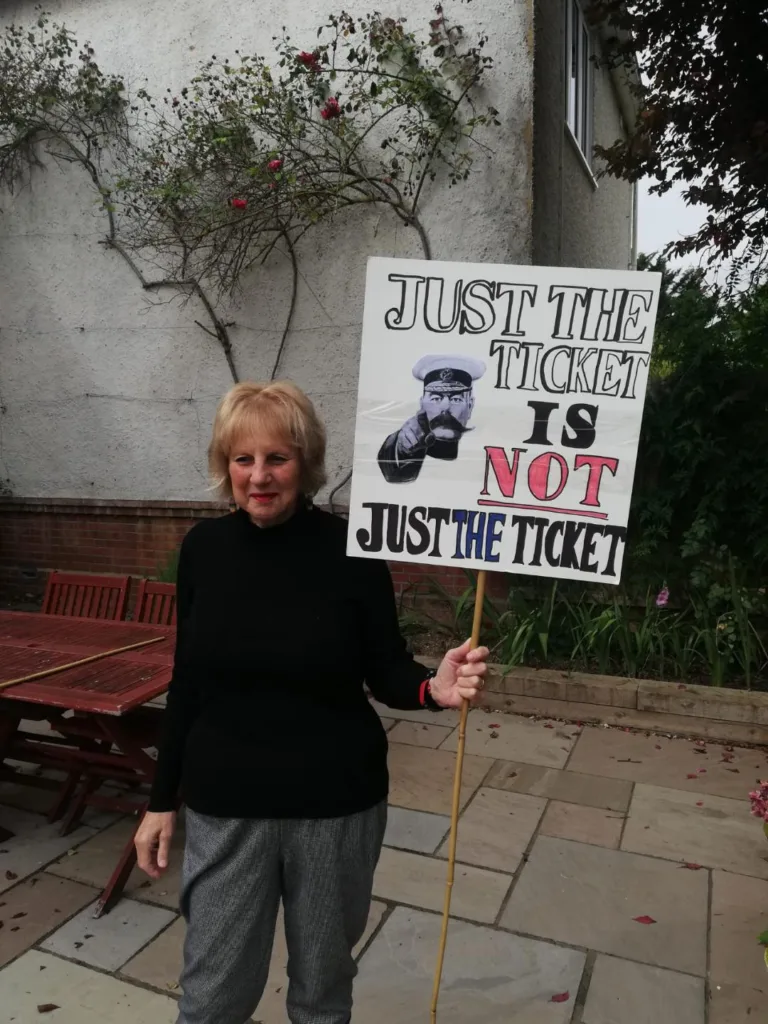
“Our post offices, our pubs are being closed, our banks are being withdrawn from the high street.
“Everywhere we go our community assets are being hollowed out in the name of profit, in the name of modernisation.
“That is the most abused word, along with reform. It’s cuts, cuts, cuts. And let’s not forget the responsibility for this is not with the train operating companies, it’s with Rishi Sunak and the top people in the Cabinet.
“The decision to shut the ticket offices and de-staff our stations and make our workers redundant, in the notices they have already given to us, is a political decision.
He said: “All our services, including council services, are national assets and we will protect them with all our might. What we must learn and what the Labour Party must learn and anyone that wants our votes, whether they are in the Scottish Parliament, the Welsh Assembly, Westminster, in mayoral halls or local authorities, is if you want working people to vote for you, you’ve got to deliver an agenda for working people.
“You cannot have proper public services without proper pay, terms, and conditions for public sector workers. We’ve got to fight for our stations, fight for our people, build a new working-class movement based on all our interest groups.
“The disability groups, the identity groups, the people struggling against poverty have all got to be brought into our working-class movement. We’ve got to stand up for ourselves, not rely on the politicians and the shysters.
“Stand up for our people, stand up for our class. Solidarity – and (to cheers, whoops, and applause) let’s get in before the rain comes. “


